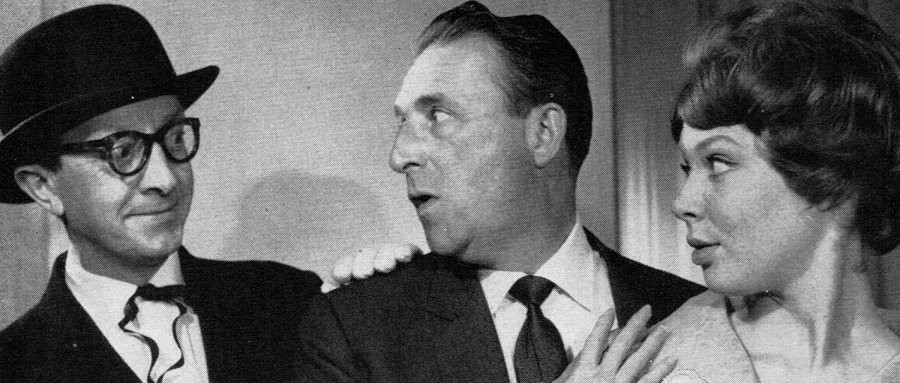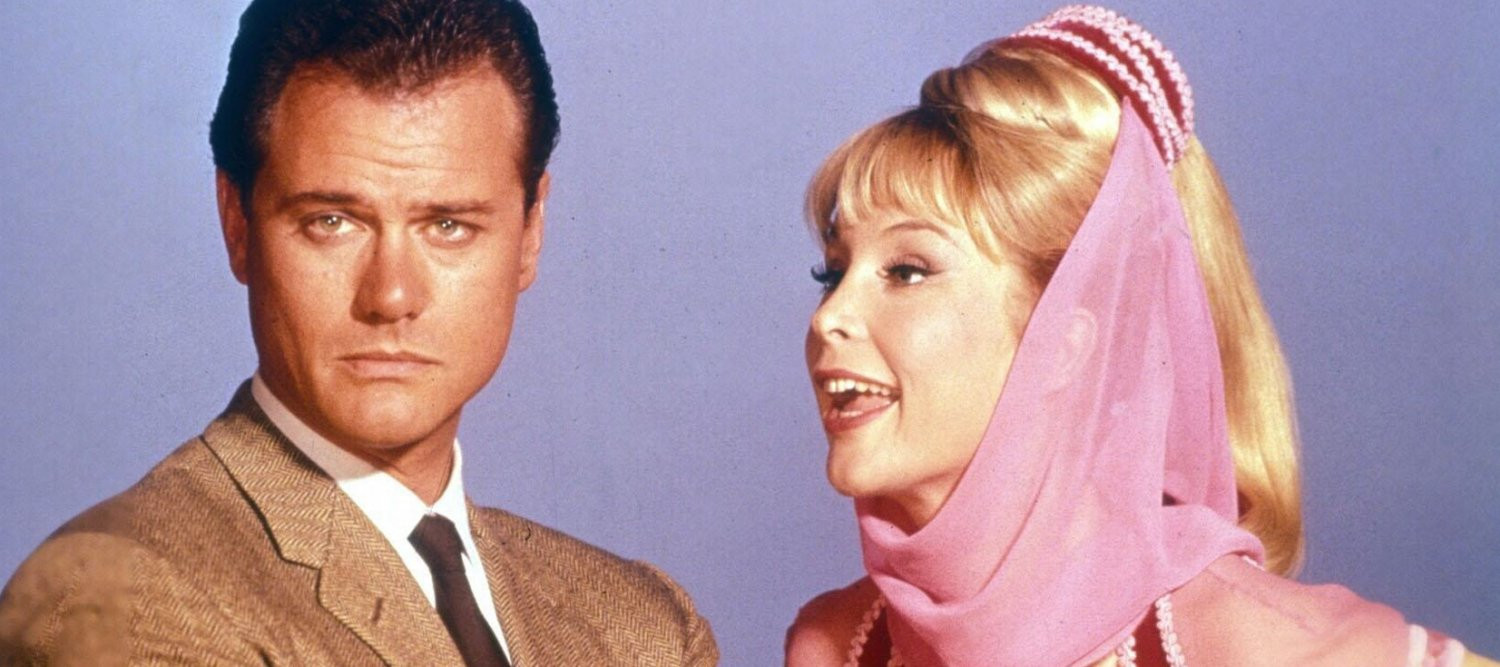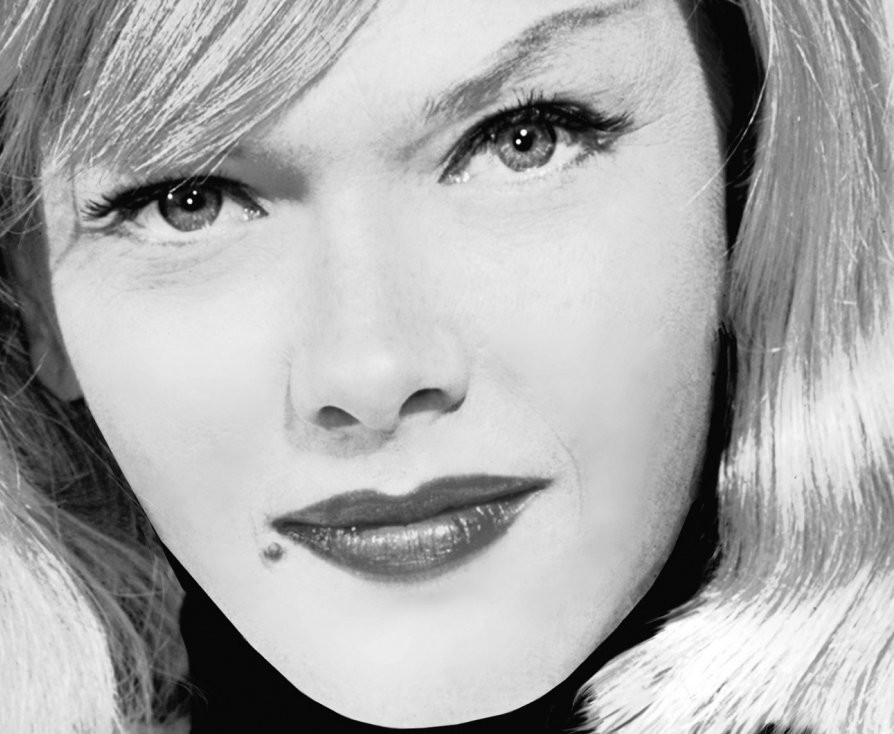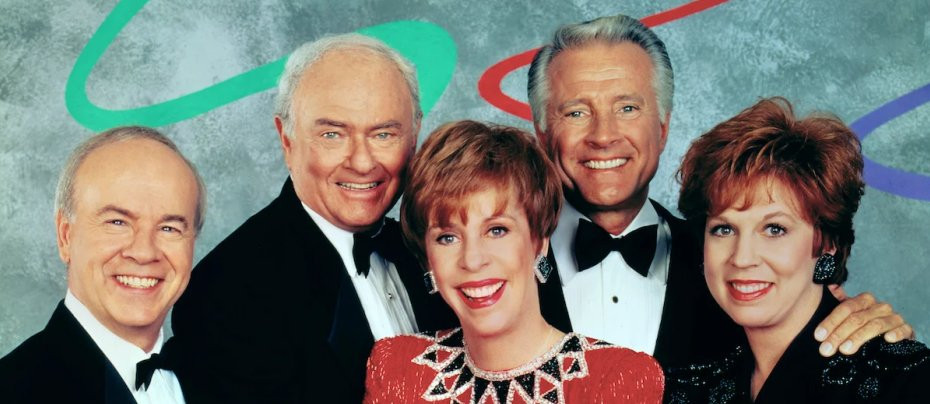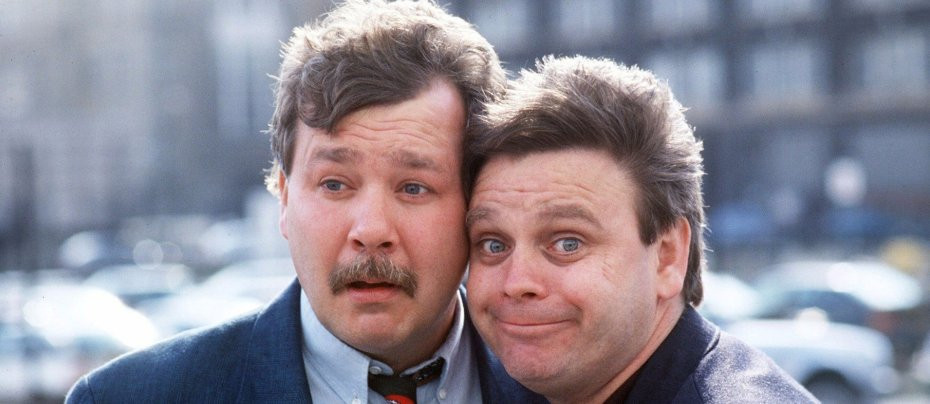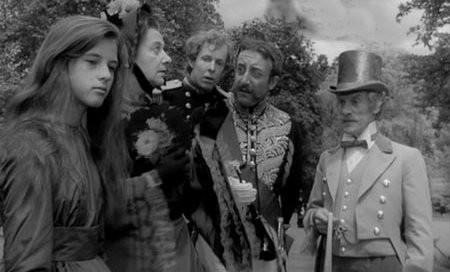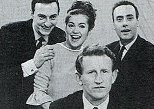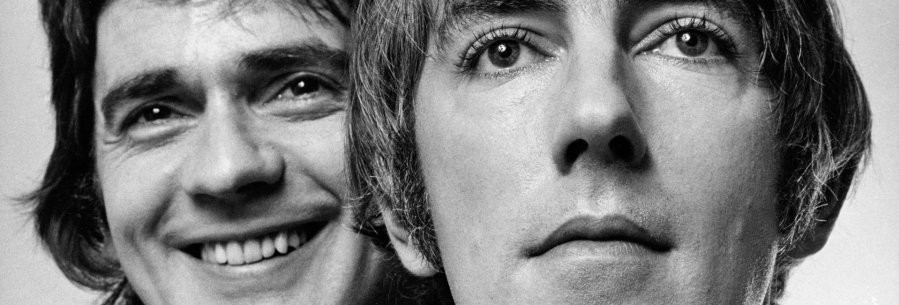
Not Only...But Also...
1965 - United KingdomClassic comedy series that began as a 'one-off' show from jazz musician and comedian Dudley Moore and his 'Beyond The Fringe' partner Peter Cook, but one which was instantly commissioned as a series by the BBC and quickly rose to cult status.
Peter Cook was educated at Cambridge and began writing humorous material while he was an undergraduate. It was here that he wrote a revue called 'Pieces of Eight' for Kenneth Williams and also became involved with many of the "Footlights" revues. It was for one such revue that he created a character by the name of E. L. Wisty, a drably dressed gentleman with colourful ideas of world domination. He took the character into the hit revue 'Beyond the Fringe' when it played on both London and New York stages. It was here he met Moore.
Dudley Moore was born in Dagenham, Essex, and began piano lessons at the age of eight. Following six years at the Guildhall School of Music he went to Magdalen College, Oxford, where he gained his Bachelor of Music degree. He played with a number of well-known bands and toured America for a while before returning home to write music for an Edinburgh Festival revue. It was here that he came to the attention of the "Fringe" team. Moore and Cook struck up an instant rapport and another facet of Dudley's talents came to the fore: His sense of humour.
Around this time Peter Cook met already established TV star Bernard Braden who offered him a spot in his Saturday night BBC show On the Braden Beat. Braden said at the time that he considered Cook to be "...one of the most talented people I have met in years." Viewers and critics agreed and it was through these appearances on "Braden" that the BBC offered Cook his own one-off show.
Not Only... But Also... was a mixture of music and sketches and a segment called 'Poets Cornered' which gave the opportunity for comic talents such as Spike Milligan and Barry Humphries to show off their spontaneous rhyming skills under the threat of being dropped into a "gunge" tank, years before this became a popular ploy on such shows as Tiswas and Noel's House Party. Many of the sketches were typically Pythonesque before the term (or indeed the show) had even been invented, including sketches about the Leaping Nun's of St Beryl and a Good vs. Evil cricket match.
Other guest stars included Peter Sellers and John Lennon, the latter of whom appeared as a gent's lavatory attendant. But it was Pete and Dud who were the real stars of the show appearing as two cloth capped philosophers from Dagenham, who would debate the issues of the day over a sandwich and a pint.
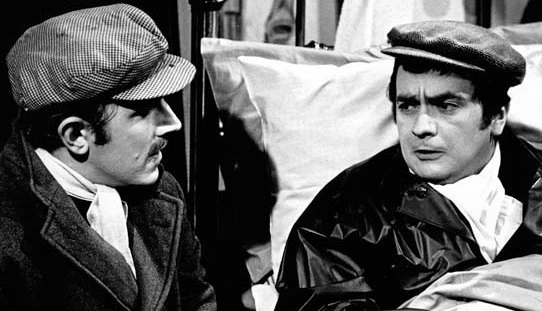
Dubbed the Dagenham Dialogues the sketches featured two half-informed idiots usually sitting in a public place such as a pub or an art gallery where they pontificated over a wide range of debatable and emotive subjects such as the virtues of art, sex, religion or the morals of Dud's aunt Dolly. The sketches were mostly scripted and somewhat improvised which sometimes caused Cook (but mostly Moore) to corpse as their conversations took on decidedly surreal turns. Cook only needed a hint that Moore was about to start corpsing and he would deliberately ad lib whilst his partner tried to hide his fits of laughter by stuffing a sandwich in his mouth or hiding behind his pint of beer.
If one wondered just what sort of act the two of them would come up with without the constraints of TV and censorship, then the 1976 album 'Derek and Clive' left no doubt whatsoever with its decidedly foul mouthed and wholly adult content.
The duo also made it to the big screen together alongside an all-star cast in the Larry Gelbart, Burt Shevelove scripted black comedy, 'The Wrong Box.' Not Only... But Also... closed with the song 'Goodbye-ee' which made its way into the top twenty chart in 1965, and although the series only lasted two all-too-short seasons it was constantly being revived in one form or another right up until Peter Cook's untimely death in the mid-1990's. A consummate double act, Peter Cook and Dudley Moore's idiosyncratic, uniquely individual style of comedy served as a quintessential showcase for the development of an entirely new age of comedy, which went hand-in-hand with the more far-reaching social changes of the mid sixties.
They were special...and they knew it.
Seen this show? How do you rate it?
Seen this show? How do you rate it?
Published on January 15th, 2019. Written by Laurence Marcus (2000) for Television Heaven.


